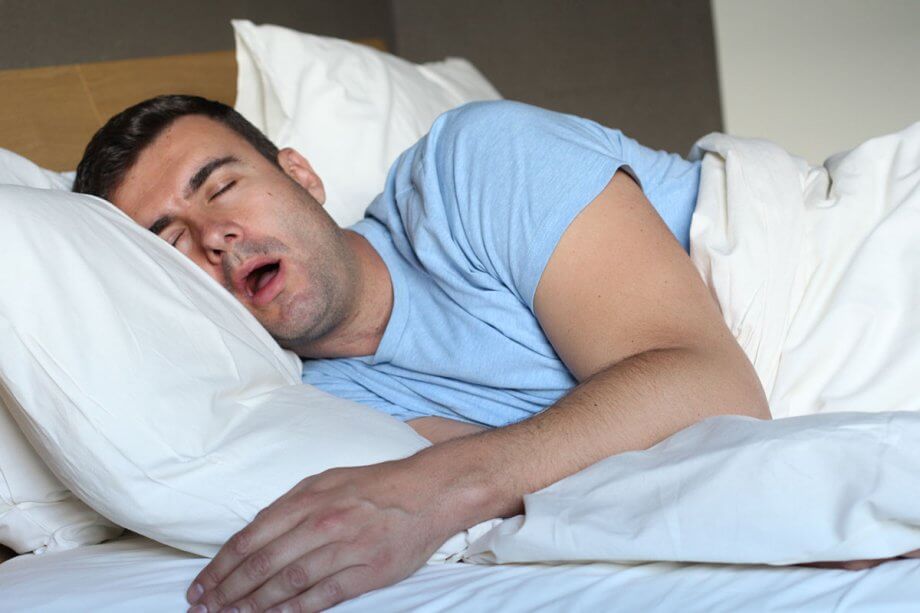If you’ve been told you snore or often feel tired during the day, you may be dealing with sleep apnea, a condition that can lead to serious health issues if left untreated. The good news is that sleep apnea can be successfully treated and your dentist might be able to help.
What is Sleep Apnea?
Sleep apnea is a condition that causes repeated interruptions in breathing while you sleep. These pauses in breathing can last for a few seconds or even over a minute, and they can occur up to 400 times per night. These disruptions can wake you up or continue without you being aware, but either way, they can negatively impact your health.
The most common type of sleep apnea is obstructive sleep apnea or OSA for short. OSA occurs when something, like the tongue or tissue at the back of the throat, blocks the airway. When the airway is blocked, breathing becomes difficult or even stops entirely during sleep, limiting oxygen flow to the body.
Sleep Apnea Risk Factors
Sleep apnea can affect people of any age, even those who appear otherwise healthy. However, the risk increases as you age due to changes in the brain that control breathing and a natural build-up of fatty tissue around the neck and tongue.
Other factors that can increase your risk include:
- High blood pressure
- Alcohol or sedative use
- Certain physical traits, such as nasal polyps or enlarged tonsils
- A larger neck circumference
- Obesity
Frequently Asked Questions About Sleep Apnea
What are the Warning Signs of Sleep Apnea?
Common signs that you might have sleep apnea include:
- Loud snoring or making gasping or choking noises during sleep
- Being told by a partner or roommate that you snore or stop breathing while asleep
- Abrupt awakenings with gasping or choking
- Waking up with morning headaches
- Feeling tired during the day, even after getting a full night’s sleep
- Excessive daytime sleepiness, which may cause you to nod off while working, reading, watching TV, or driving
- Feeling irritable, depressed, or having trouble concentrating
- Waking up with a dry mouth or sore throat
- High blood pressure
- Decreased libido
If any of these warning signs sound familiar, it’s important to consult a medical professional. Sleep apnea is a serious condition, but with the right diagnosis and treatment, it can be managed effectively to improve your quality of life and overall health. Your dentist may be able to help you manage your sleep apnea with dental treatment options.
Does Sleep Apnea Require CPAP?
Not all sleep apnea patients require CPAP (Continuous Positive Airway Pressure) for treatment and prevention. Some individuals may find relief with alternative treatments, such as an oral appliance, or even by achieving modest weight loss. To determine the most effective treatment for your sleep apnea, consult a healthcare professional experienced in sleep apnea management.
In some cases, dentists can provide a solution, such as a custom mouth guard. These devices can help keep the airway open during sleep, making it easier to breathe and potentially reducing the severity of apnea episodes.
Sleep Apnea Treatments at Fabey Dental
If you’re looking for dental treatments for sleep apnea, call Fabey Dental at 610-810-2704 to make an appointment or request an appointment online. Contact us today to learn more about the options available to help treat and manage sleep apnea.

